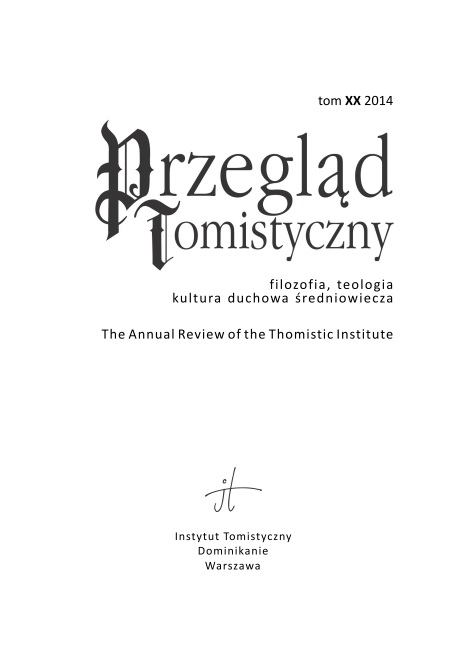Z Przybyszewa w świat, czyli uwagi o życiu Jana Damascena Łubienieckiego
From Przybyszew Into the World, That is, Notes on the Life of John Damascene Lubieniecki
Author(s): Wiktor SzymborskiSubject(s): Middle Ages, Theology and Religion, 6th to 12th Centuries, History of Religion
Published by: Instytut Tomistyczny
Summary/Abstract: The purpose of this article is to examine the career of a religious living at the turn of the seventeenth and eighteenth century, Father John Damascene Lubieniecki, as well as to discuss the issues related to the foundation of the theology faculty at the Sopra Minerva priory in Rome, where Lubieniecki was one of the lecturers. According to the will of Cardinal Jerome Casanate, two chairs of theology and a college of six theologians were established at the Dominican priory. According to the cardinal’s plan, this centre was intended to instruct both secular and consecrated persons in the thought of Saint Thomas Aquinas. Casanate’s theologians were supposed to represent the major nations of the world. The first professor from the Germanic nations (in which medieval universities included Hungary and Poland) was John Damascene Lubieniecki. It is worth noting that Cardinal Casanate defined clearly the academic qualifications that a lecturer must have. On the list of institutions that the lecturers of the various nations were required to have studied in were the University of Salamanca, the University of Paris, and, for members of the Germanic nations, the Dominican general studiumat the Krakow or Vienna priories or the University of Cologne. The figure of John Damascene Lubieniecki deserves attention not only because of his work as a lecturer at this centre sponsored by Casanate. He also held a number of important functions in the Polish Province of the Dominicans. He had a thorough education, studied in Krakow, Spain and France, and taught in the formal studium in Warsaw and the general studium in Krakow. He was elected several times as prior of various convents of the Polish Province (Sieradz, Brześć Kujawski, Warsaw) and was actively involved in the organization of a general studium at the priory in Warsaw. The crowning achievement of his religious career was his election as provincial. To the long list of important functions he carried out in the Order should be added his participation in a pontifical commission dealing with the beatification of Blessed Czeslaw (Ceslaus). The last task entrusted to him was the administration of the diocese of Bacãu, Moldova, whose territory included Moldavia and Wallachia as well as Bessarabia.
Journal: Przegląd Tomistyczny
- Issue Year: 2014
- Issue No: XX
- Page Range: 239-261
- Page Count: 23
- Language: Polish

